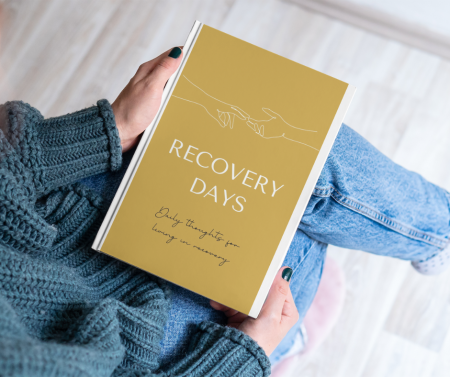Table of Contents
Yes or no?
Research shows that less than 10% of substance misusers never seek help for their dependences, often waiting to reach rock bottom which can lead to fatalities.
Rehab Costs & Options for Alcohol | Drugs | Other addictions
This causes huge difficulties for family members and their extended community because each person is affected by relational symptoms of addiction and subsequent consequences. Here we explore the idea of reaching rock bottom and alternative solutions.
What do we mean by ‘rock bottom’?
‘Rock bottom’ is a term that is often used by those struggling with addiction, saying they have reached this point of finality when they experience a particularly painful consequence of the illness, and realise they can’t go on as they have been.
This could be losing a job, hurting someone or themselves emotionally or physically, acting outside of their value system, getting caught breaking the law, putting their children’s lives at risk, getting expelled from school or being rejected by family and friends.
Due to the nature of addiction and denial being a particular feature of this illness, often individuals return to problematic use of substances despite being convinced otherwise. This can be incredibly painful to experience and for families to witness.
As addiction can be a fatal illness, rock bottom for many is, unfortunately, death.
Not always the same for everyone
Rock bottom can’t be quantified or measured. The disease of addiction expresses itself differently in those with the illness and denial comes in many degrees of severity.
At the point someone is inspired to seek help depends on one’s perception of a consequence and the pain experienced as a result.
For some the threat of divorce may be enough to trigger behavioural change, for others it may be developing cirrhosis of the liver.
The real significance of someone experiencing a personal rock bottom is that they feel the only solution is to seek help. To find themselves at this hugely painful point is to be on the cusp of true change.
That person has finally faced and overcomes the denial of a substance or behavioural addiction, the first step towards lasting recovery.
“We change our behaviour when the pain of staying the same becomes greater than the pain of changing.” (Dr Henry Cloud, author of ‘Boundaries’)
Waiting for rock bottom can be dangerous
Hitting bottom may be an important factor in seeking treatment for addiction. But if addiction is left untreated for too long, the only rock bottom when dealing with addiction is death.
Due to the media and popular culture, we have been indoctrinated into the idea that to best support somebody living with addiction, we must allow them to reach rock bottom, that to try and help them would mean ‘enabling’ their addiction.
“When she hits her rock bottom, she will be ready to receive our help.”
“She has to hit bottom to be willing to change.”
“Addiction treatment won’t work if she hasn’t hit rock bottom.”
Sadly, this thinking has led to unnecessary harms, the most tragic of which continues to be countless preventable deaths. As such, waiting for a someone to hit rock bottom before seeking treatment and recovery is incredibly dangerous.
Rock bottom isn’t something to aim for, a destination, a place that you or a loved one should be looking to land.

There is no need to wait for someone to reach rock bottom before they find help
It is important that individuals and their families don’t rely on a rock bottom approach to find freedom from addiction. Contrary to popular belief, there is a loving and effective alternative.
It is possible and lifesaving for someone to get help before they experience the painful and deadly consequences of their addiction.
For many, convincing a loved one to seek help is not easy if they are still experiencing denial around their illness. Despite denial being a powerful force, in the form of an intervention, the love and concern of a family can be leveraged to break down denial and inspire change in the person struggling with substance misuse.
‘Intervention‘ can be a scary word for some conjuring up images of forcing individuals into treatment against their will.
But, carried out with care and compassion by a trained practitioner, interventions can be an effective way of facilitating a loved one to access the help they may desperately need.
This can be an intimidating idea for many families, particularly if this is the first time they’ve experienced addiction, relations are strained or fractured completely.
Often families move away from the idea of an intervention due to lack of information or fear of conflict and/or the process failing and ongoing cohabitation with the individual concerned being necessary.
But extensive research shows that families are an untapped resource. An intervention leverages your connectedness, love and commitment to the individual, motivating them to enter treatment.
Why is rock bottom the only motivation for some people?
Denial is a common feature of addictive disease and is one of the main reasons why some rely on a future rock bottom as motivation to find help. However, denial is hard to spot as someone who is invested in continuing an addictive process can be very convincing.
Denial is when someone ignores, downplays, or distorts reality.
Denial causes individuals struggling with an addictive illness to underestimate the amount of a drug of choice they consume, the duration of the problem, or the impact the substance misuse has had on their lives and the lives of those they are close to.
Their perceptions often go against compelling evidence of the severity of their problem. For some, the denial is fragile and is easily penetrated when they are lovingly confronted. For others, the denial is unaffected when they are presented with the consequences of their addiction and, as such, rely on what they perceive as hitting rock bottom to inspire change.
When is the right time to seek addiction treatment?
Sometimes it can feel like there is a ‘right’ time to seek help with addiction, for example, after a family wedding, Christmas, or exams. However, there is never a perfect time to stop misusing substances.
Someone with the illness of addiction will often look for reasons to put off seeking help as the prospect of halting drug use can feel terrifying, like they might lose their minds, and/or it isn’t possible to stop.
If you are visiting this website and reading this article, you haven’t arrived here by accident, it is likely that you or your loved one need help. As such, the right time to seek addiction treatment is now.
Get in touch
If you need emergency mental health advice or medical support please call the NHS 24 helpline as soon as possible on 111. The advice is free and could save a life.
If you need advice on accessing inpatient rehab treatment for addictions, please call our 24-Hour helpline on 01721 728118 to arrange a free addiction assessment. We are here to help.



